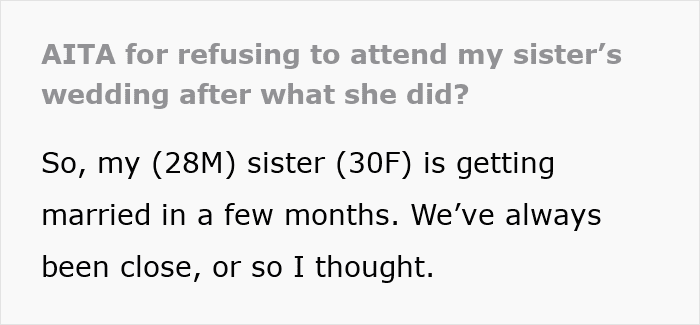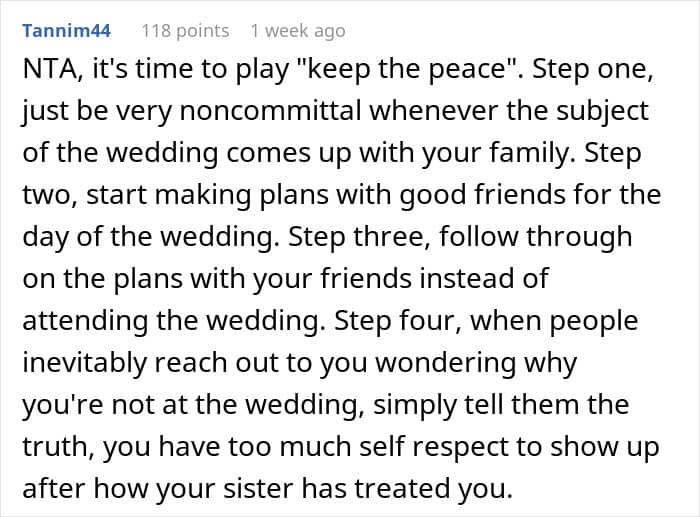Family is complicated. We wish it wasn’t, but sometimes it seems we are just one Thanksgiving dinner away from a full-blown argument over what happened ten years ago.
For Reddit user Only_respond_in_puns, the latest conflict was with his sister. The man assumed he would be part of her wedding party (since their other sibling was), but he learned that the bride wasn’t willing to trust him with such an important role because he didn’t fit the “aesthetic” she had envisioned for her big day.
RELATED:This young man wanted to be there for his sister on her wedding day, but she tried to make him as invisible as possible

So he refused to go altogether








Having a grown-up relationship with your sibling isn’t always possible

Diane Gottsman, an internationally renowned etiquette expert and founder ofthe Protocol School of Texas, has spent the last few decades training everyone from university students to business leaders on how to navigate tricky social and professional situations with confidence and ease. She told We that both siblings are technically correct. “The couple does have the right to choose the wedding party. But the brother is also responding in a perfectly understandable manner.”
However, “to eliminate a family member from a photo or from being part of the wedding party because of a birthmark or any other type of issue beyond their control because you want ‘the aesthetics’ to look good is extremely shallow.”
According to Gottsman, the brother has a right to be upset. “There might not be anything he can do about it and it’s clearly a hurtful and a sad situation. He can rest assured his feelings are valid. There will be plenty of opportunities to be in pictures with people who are emotionally deeper and more compassionate than what he is seeing displayed by his sister.”
There isn’t a whole lot of research on sibling estrangement, but in one study, 28 percent of German brothers and sisters reported at least one “episode” (defined as either a lack of contact or emotional closeness). The reasons for sibling conflict vary, but common ones include parental favoritism (in both childhood and adulthood), disputes over caregiving, and abuse by either parents or siblings.
With the amount of information we have, it’s hard to draw any overarching conclusions in this situation, but for now, Gottsman said, “The man would do well to lean into friends and family for support and try to avoid further conflict with the bride.”
“It will take forgiveness on his part and understanding on the bride’s part. At this particular time, the bride does not seem to show compassion for her brother’s feelings. I wonder how she would feel if the roles were reversed. A birthmark is just a fraction of what defines this young man. His character, commitment to family, along with the relationship he shares with his sister should have been considered first and foremost.”
People who read the man’s story pretty much unanimously said that his decision not to attend is completely justifiable














